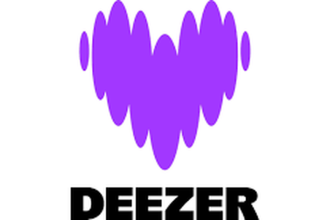Apple is facing a major collective legal action in France over allegations that its App Store commission structure artificially inflated the prices of music streaming subscriptions. The case, brought forward by a consumer association, targets the additional costs passed on to users of services such as Spotify, Deezer, Tidal and Qobuz over a period spanning from 2011 to 2025.
At the heart of the complaint is Apple’s long-standing commission model, which required streaming platforms to hand over a percentage of their in-app subscription revenue. According to the claim, this system forced platforms to increase retail prices by €1 to €3 per month, shifting the financial burden directly onto consumers.
What the Case Is Really About
For years, Apple imposed a commission on digital subscriptions made through iOS applications. Streaming services, unable to absorb the cost internally, allegedly passed these fees onto their subscribers through higher monthly prices.
The legal action is closely linked to a European decision made in 2024, which challenged Apple’s dominance and anti-competitive practices in the app ecosystem. The French case now focuses on retroactive financial damage to consumers over more than a decade.
This is not just a billing dispute — it’s a structural challenge to how digital marketplaces have been allowed to operate.
Why This Matters for the Streaming Industry
This case could trigger major economic shifts across the entire music streaming landscape.
If the accusations hold, it could lead to:
Changes in how commissions are applied
Greater pricing transparency for consumers
New rules governing in-app subscriptions
Stronger competition between platforms
Apple’s commission model has shaped the business strategies of nearly every streaming platform. A legal reversal would put pressure on other tech giants using similar structures and could redefine how money flows through the digital music ecosystem.
The Potential Impact on Streaming Prices
If new regulations are enforced, subscription pricing may finally become more competitive. Without heavy commission fees, platforms could lower prices or introduce more flexible subscription models.
This could include:
Cheaper individual plans
More aggressive family and student discounts
New bundled or hybrid subscription options
For consumers, it could mark the end of artificially inflated streaming costs.
What This Means for Artists
For artists, the consequences could be significant.
Royalties are heavily influenced by the economic structure of streaming platforms. If commissions decrease and platforms retain more revenue, there is potential for:
Improved artist payout models
Better royalty distribution systems
More transparent revenue reporting
New opportunities for independent artists
However, changes like these also create uncertainty. Platforms may restructure how they calculate streams, adjust subscription tiers or alter internal revenue pools — which could directly impact artist earnings.
How Artists Should Prepare
Artists and independent labels should closely monitor these developments. Strategic adjustments may soon be necessary, especially in areas such as:
Release timing
Platform prioritization
Pricing strategies
Direct-to-fan marketing
The days of relying on a single dominant platform may be numbered if regulation reshapes the market.
A Turning Point for Digital Music
This legal action could become a landmark case in Europe’s fight against anti-competitive tech practices. If successful, it may open the door to further challenges in other countries and industries.
The balance of power between tech giants, digital platforms, artists, and listeners may be on the verge of a major reset.
Final Thoughts
Apple’s legal battle in France is more than a lawsuit — it’s a signal of change. The economics of music streaming are under serious scrutiny, and the long-term effects could transform the industry.
For platforms, this could mean restructuring business models.
For listeners, fairer pricing.
And for artists, a potential shift in how music careers are built in the streaming era.
The industry is entering a period of recalibration — and everyone will be affected.
![]()














